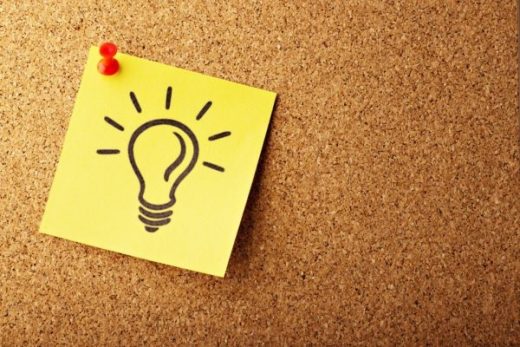The Profit: Queork Expands Their Product Line and Enters New Markets With Marcus Lemonis
— December 15, 2018

AbsolutVision / Pixabay
New Orleans based, Queork, is a unique small business that specializes in manufacturing a variety of products made from cork. Their product line ranges from handbags and shoes to jewelry and accessories. While cork products have trendy appeal, they also are environmentally friendly and boast many features such as being sustainable, naturally waterproof, stain resistant, scratch resistant, and odor resistant.
Queork has been in business since 2012 and is owned and operated by partners Amanda Dailey and Julie Araujo. The idea to create a product line around cork-based products came during a trip to Portugal when they were visiting Julie’s family. Although neither Amanda or Julie had a manufacturing background, Amanda immediately recognized the beauty and functionality of cork and their venture into manufacturing cork-based products to sell in the US began.
Inspired by the material and product capabilities, Amanda learned to commercially sew from Julie’s mom but found herself in need of additional talent to help drive her manufacturing process. She partnered with a local non-profit, YEP (Youth Empowerment Project), which identifies young adults who are looking to be trained in a skill or trade in order to secure a full-time position and career. Queork was able to identify many talented individuals to train and employ. This helped to secure their workforce and grow their product line.
Many of Queork’s employees are from the Youth Empowerment Project, providing local youth an opportunity to learn a skill and a trade.
If you want to learn more about @YEPNOLA, visit their website here: https://t.co/9WRigTEMCW #TheProfit
— CNBC’s The Profit (@TheProfitCNBC) December 12, 2018
Although their product is innovative, they employee talented artists, and they have expanded to 4 locations, Queork has not made a profit over the last 6 years and therefore has called in the help of investor Marcus Lemonis. As Marcus toured their business and dove into their financials, he found several improvement areas that he felt could make a big impact on their business:
- Optimize and organize manufacturing processes
- Increase the quality of the hardware being used in the product (zippers, fasteners, etc)
- Expand their product line to include other materials such as canvas and leather
- Allow the artists creating the product to put their own stamp of color and design on the products
- Begin wholesaling their product with other companies
- Make dramatic changes in the retail store to tell their story and educate the customers on the benefits of cork and the YEP integration
- Incorporate an inventory management system for their warehouse
- Hire additional resources from YEP
Although Queork’s products have incredible margins, Marcus was very concerned over the financial stability of the company and was unsure if he wanted to invest for that reason. Aside from having around $ 400,000 in debt, the company also owed approximately $ 85,000 in back taxes. Shareholders of companies are personally responsible for these back taxes and he did not want to assume that type of risk. Because of a communication breakdown between Amanda and Julie, Julie didn’t know the company was in such trouble. She was able to pay off the tax debt and Marcus then agreed to go into business with Queork. They agreed on each having a third partnership in the company in exchange for a $ 120,000 investment from Marcus.
Marcus spent some time at Queork to understand what key issues were at play in the retail side of the business. He quickly learned that because Amanda lacked enthusiasm and did not seek out customers to network and educate them on their product or business. She was not successfully taking a lead and converting it to a transaction. With Marcus standing outside the store and educating passersby and customers, they were able to double their sales for the day.
.@marcuslemonis can sell anything. But maybe not while holding an axe? #TheProfit pic.twitter.com/5vaWwFP3ex
— CNBC’s The Profit (@TheProfitCNBC) December 12, 2018
In touring their manufacturing space, Marcus identifies several areas that can immediately be improved to help with their efficiency:
- Establish a specific location for finished goods
- Properly manage scraps by creating an organized system and location to store them
- Ensure that the leadership structure is understood and communicated to all employees to increase individual accountability
- The manufacturing area needs to be as clean and organized as possible
Marcus took key employees from Queork to New York to see similar successful manufacturing processes to help them understand how they can improve their own. He also took them to purchase higher quality hardware for their products. As Marcus considered what markets Queork could expand into, he found that wine corks are a natural progression of thought and set-up meetings with some potential buyers in California’s wine country. Amanda really struggles to tell their brand story and sell her product. This is an area that will need significant improvement before their next meeting with wholesalers.
Amanda was able to secure Queork a lease on a new property for their manufacturing process for a comparable price with better amenities and layout for their business, but there was one main problem. She didn’t communicate this change with Marcus. Although Marcus was very upset with this lack of communication and lack of respect for their goods and the condition they left the other facility in, he was very pleased with the new space that Amanda found and the organization of the new facility. There are several key improvement factors that have been implemented that will greatly maximize Queork’s manufacturing efficiencies:
- An inventory system is in place
- Significantly increased organization
- New technology which opens new capabilities for their business
- Assembly process layout
Marcus arranged for another wholesale meeting with Wine Enthusiasts, a company who has a tremendous brand presence in the market that Queork can play. Amanda was much more prepared and passionate about this meeting and presented their company and products very well. She offered exclusivity for a wine tote bag that they were interested in. They were able to appropriately handle all objections and at the end of the meeting Wine Enthusiasts share that they love Queork’s story and their passion and want to do business together.
After showing tremendous improvements throughout their business model, overall communication and day-to-day processes, Queork is well on their way to being a successful and profitable small business with a great social responsibility story to tell.
Key Business Take-a-Ways:
- To improve sales conversion, increase the level of product information and enthusiasm in the initial stages of meeting or marketing your product.
- Educating your market on your product and your business is one of the easiest ways to increase sales.
- Social program involvement is an extremely valuable way to tell your brand story and to give back
- Exclusivity is a great way to engage a wholesale potential into committed partner
- A proper inventory management system allows a company the ability to take on more capacity and make more money
- Communication is a key to the success of any business
The Profit” airs Tuesdays at 10 p.m. on CNBC.
What are your thoughts on the expansion of Queork’s product line and their move into the wholesale market? What do you feel was the most impactful change that Marcus implemented? Let us know in the comments section below!
Business & Finance Articles on Business 2 Community
(22)


